第107章 A Bewildered Bok (1)
One of the misfortunes of Edward Bok's training, which he realized more clearly as time went on, was that music had little or no place in his life.His mother did not play; and aside from the fact that his father and mother were patrons of the opera during their residence in The Netherlands, the musical atmosphere was lacking in his home.He realized how welcome an outlet music might be in his now busy life.So what he lacked himself and realized as a distinct omission in his own life he decided to make possible for others.
The Ladies' Home Journal began to strike a definite musical note.It first caught the eye and ear of its public by presenting the popular new marches by John Philip Sousa; and when the comic opera of "Robin Hood"became the favorite of the day, it secured all the new compositions by Reginald de Koven.Following these, it introduced its readers to new compositions by Sir Arthur Sullivan, Tosti, Moscowski, Richard Strauss, Paderewski, Josef Hofmann, Edouard Strauss, and Mascagni.Bok induced Josef Hofmann to give a series of piano lessons in his magazine, and Madame Marchesi a series of vocal lessons.The Journal introduced its readers to all the great instrumental and vocal artists of the day through articles; it offered prizes for the best piano and vocal compositions; it had the leading critics of New York, Boston, and Chicago write articles explanatory of orchestral music and how to listen to music.
Bok was early attracted by the abilities of Josef Hofmann.In 1898, he met the pianist, who was then twenty-two years old.Of his musical ability Bok could not judge, but he was much impressed by his unusual mentality, and soon both learned and felt that Hofmann's art was deeply and firmly rooted.Hofmann had a wider knowledge of affairs than other musicians whom Bok had met; he had not narrowed his interests to his own art.He was striving to achieve a position in his art, and, finding that he had literary ability, Bok asked him to write a reminiscent article on his famous master, Rubinstein.
This was followed by other articles; the publication of his new mazurka;still further articles; and then, in 1907, Bok offered him a regular department in the magazine and a salaried editorship on his staff.
Bok's musical friends and the music critics tried to convince the editor that Hofmann's art lay not so deep as Bok imagined; that he had been a child prodigy, and would end where all child prodigies invariably end--opinions which make curious reading now in view of Hofmann's commanding position in the world of music.But while Bok lacked musical knowledge, his instinct led him to adhere to his belief in Hofmann; and for twelve years, until Bok's retirement as editor, the pianist was a regular contributor to the magazine.His success was, of course, unquestioned.He answered hundreds of questions sent him by his readers, and these answers furnished such valuable advice for piano students that two volumes were made in book form and are to-day used by piano teachers and students as authoritative guides.
Meanwhile, Bok's marriage had brought music directly into his domestic circle.Mrs.Bok loved music, was a pianist herself, and sought to acquaint her husband with what his former training had omitted.Hofmann and Bok had become strong friends outside of the editorial relation, and the pianist frequently visited the Bok home.But it was some time, even with these influences surrounding him, before music began to play any real part in Bok's own life.
He attended the opera occasionally; more or less under protest, because of its length, and because his mind was too practical for the indirect operatic form.He could not remain patient at a recital; the effort to listen to one performer for an hour and a half was too severe a tax upon his restless nature.The Philadelphia Orchestra gave a symphony concert each Saturday evening, and Bok dreaded the coming of that evening in each week for fear of being taken to hear music which he was convinced was "over his head."Like many men of his practical nature, he had made up his mind on this point without ever having heard such a concert.The word "symphony" was enough; it conveyed to him a form of the highest music quite beyond his comprehension.Then, too, in the back of his mind there was the feeling that, while he was perfectly willing to offer the best that the musical world afforded in his magazine, his readers were primarily women, and the appeal of music, after all, he felt was largely, if not wholly, to the feminine nature.It was very satisfying to him to hear his wife play in the evening; but when it came to public concerts, they were not for his masculine nature.In other words, Bok shared the all too common masculine notion that music is for women and has little place in the lives of men.
One day Josef Hofmann gave Bok an entirely new point of view.The artist was rehearsing in Philadelphia for an appearance with the orchestra, and the pianist was telling Bok and his wife of the desire of Leopold Stokowski, who had recently become conductor of the Philadelphia Orchestra, to eliminate encores from his symphonic programmes; he wanted to begin the experiment with Hofmann's appearance that week.This was a novel thought to Bok: why eliminate encores from any concert? If he liked the way any performer played, he had always done his share to secure an encore.Why should not the public have an encore if it desired it, and why should a conductor or a performer object? Hofmann explained to him the entity of a symphonic programme; that it was made up with one composition in relation to the others as a sympathetic unit, and that an encore was an intrusion, disturbing the harmony of the whole.